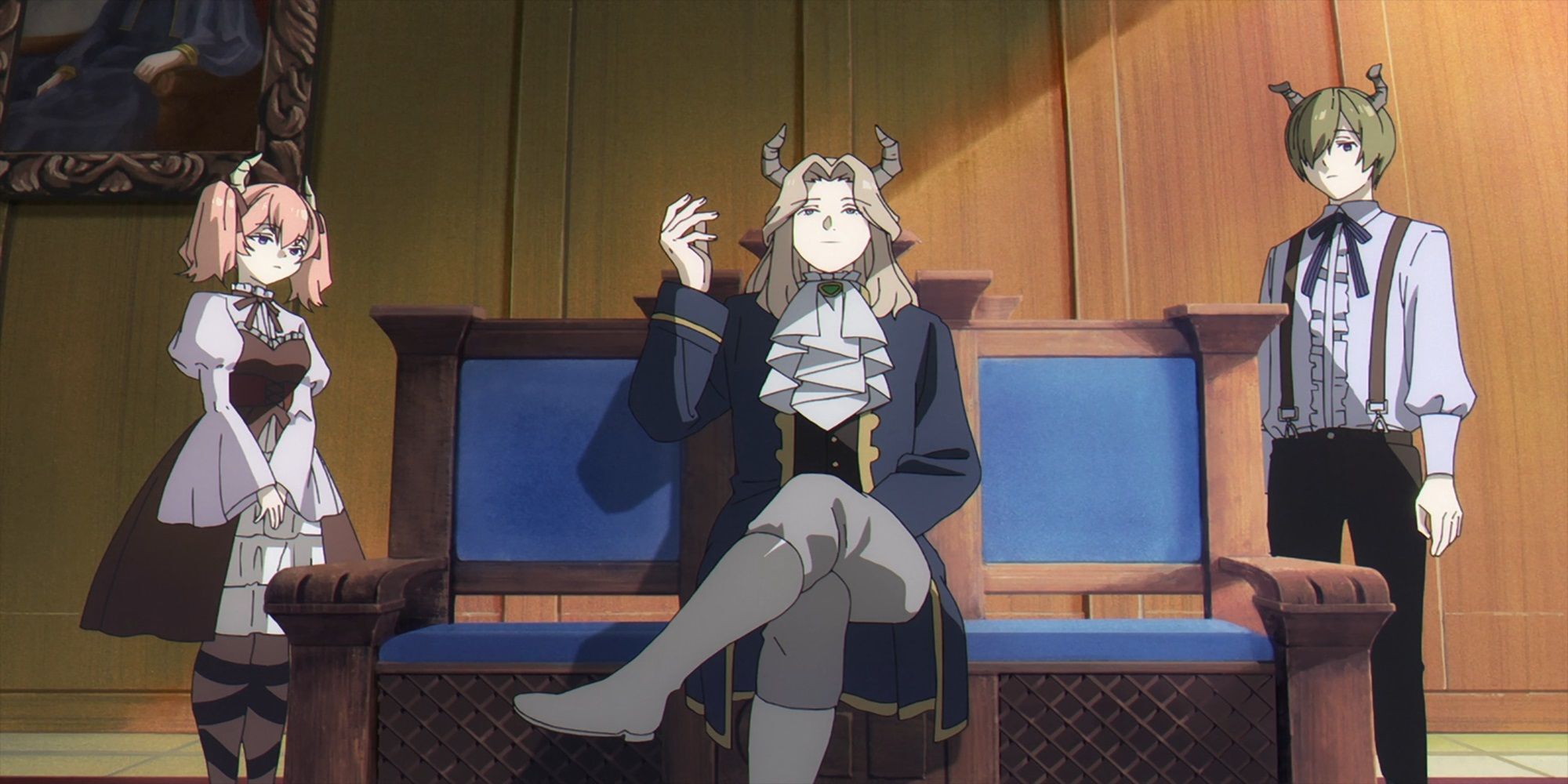Frieren Isn’t Trying To Make Its Villains Sympathetic
I strongly disagree with this point.
The whole point of the episode is that the demons act in a way that emits sympathy and empathy in the humans and viewers. Despite Frierens claim of demons having no empathy, her lack of detail and expression, and the contrasting behavior of the demons makes you wonder which is true. Which remains an ambivalent state for a while through the episode.
The conclusion is that the demons themselves do not have empathy. But the main theme of the episode is demons being depicted sympathetically.
I assume this is arguing in a way that is missing the point they were trying to make. But I’m going with what they wrote rather than guessing implicit meaning.
That seems to be a reference to anime’s tendency to make its villains sympathetic at any cost.
No way. That’s most definitely not why they chose their villains like that.
Frieren’s Demons Are The Perfect Villains, Despite Their Lack Of Depth
I think it would be hard to give them depth but at the same time make them undeniably evil. What would that kind of depth look like? So I think the lack of depth serves them being undeniably evil.
Frieren’s demons are incapable of being sympathetic because of their lack of human emotion, and that makes them the perfect villains for the series. The overarching theme of Frieren is the importance of embracing emotions and bonds with others, with Frieren’s character arc, specifically, being about her journey to be more in touch with the emotions of herself and others. As such, demons being biologically incapable of human emotion puts them in direct contrast to the overarching themes of the story, making them the best villains for Frieren: Beyond Journey’s End, […]
The lack of emotion being in contrast to Frierens discovery of emotion is certainly a valid and interesting point. But I don’t think it brings anything to the story or Frierens journey or the contrasting. It’s unrelated.
While there’s nothing wrong with a story making its villains sympathetic, seeing it be attempted so many times across so many different mediums destroys the novelty of it, especially when the results are so often lacking.
I can agree the implementations are often lacking. But that’s unrelated. Many things are often lacking.
Shallow characters and clear good vs evil setups may be more difficult to fuck up, but they are also inherently shallow.
I’m pretty sure I see purely bad-depicted villains regularly too. It’s not like there are only those that are complex or made sympathetic or reasoned with a cause.
I agree that Frieren villains are unique, to emphasize some other points:
- Demons are depicted as this alien species that works on a completely different set of rules: Their fake emotions seem to have evolved genetically into them and they are incapable of changing their nature. They are to humans what Wolfs are to Sheep – Alpha Predators.
- Also demon-kinds social hierarchy being based on Magical power level is interesting completely going against Frieren hiding her power level.
But in a way Demon mirror Frieren as well, as she herself mentally diverged from humanity over 1000s of years.
The villains in Frieren are quite similar to Dragonball villains who are non human mos of the time. During combat they find out about their similarity to the heroes.
- Demons are depicted as this alien species that works on a completely different set of rules: Their fake emotions seem to have evolved genetically into them and they are incapable of changing their nature. They are to humans what Wolfs are to Sheep – Alpha Predators.
I’m struggling to think of a villain that is redeemed who has done something irredeemable. There’s a big difference between having a moment of humanization at the end, and redemption, but I think the author is conflating those.
I didn’t watch Naruto, and the linked article didn’t explain what happened to Pain to count as a ‘redemption’, so I looked it up and sure enough he basically expends his own life to revive some people he killed. Is that redemption? Does the show call it that? Does anyone else treat it as him having redeemed himself of his earlier genocide?
There are shows where the protagonist’s party collects antagonists like pokemon, like Ranma 1/2, but those characters are usually more like personal rivals than villains.
Is that redemption? Does the show call it that?
No & No.
Does anyone else treat it as him having redeemed himself of his earlier genocide?
Unfortunately yes. Edgy dudes out there don’t put enough weight on what attempted genocide means, despite (perhaps because?) how common that is chosen for the villain goal.
I do agree with the fundamental thesis: it’s boring to see it over and over that villains tend to have a sympathetic origin story. Villains are either branded muscle-types with a thing for violence, or traumatized victims seeking help. It’s refreshing to see something different.
I don’t agree with “The Perfect Villains, Despite Their Lack Of Depth”, though. Most villains suck because most X suck, for any X. It’s not because they have gray morality.




